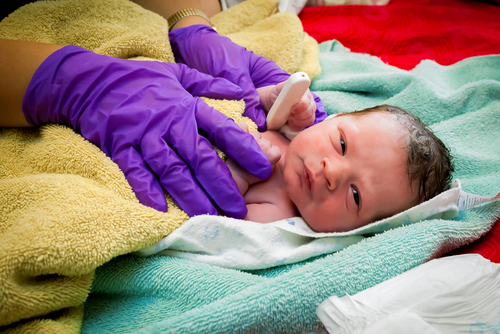Prader-Willi Syndrome Diagnosis, Care in Infants Needs Improvement, French Study Suggests

In France, infants with Prader-Willi syndrome (PWS) are being diagnosed and receiving care soon after birth. But improvements are still needed, including proper prenatal and neonatal diagnosis and care, a study found.
The findings were published in the journal Orphanet Journal of Rare Diseases in a study titled, “Early diagnosis and care is achieved but should be improved in infants with Prader-Willi syndrome.”
The diagnosis of PWS in infants occurs in the first months after birth as these children present severe hypotonia, or decreased muscle tone, and feeding difficulties. These symptoms usually are recognized by neonatologists as sufficient enough to suggest the need for a genetic diagnosis, which is now easily available.
An infant’s outcome depends on early diagnosis and adequate multidisciplinary care, including parental guidance and support, stimulation of cognitive and adaptive skills, and comprehensive advice to prevent obesity.
Excessive weight gain in PWS children is linked to delayed diagnosis and care and may lead to severe obesity at the age of 3 or 4.
Now, researchers determined the neonatal incidence of PWS in France and addressed the issues of delayed diagnosis. They also studied the care provided to infants diagnosed soon after birth.
The study, conducted by researchers at the University Hospital Center of Toulouse, included 61 infants born in 2012 and 2013 in France, with a molecular diagnosis of PWS.
Of these, 38 infants with PWS were born in 2013, representing an incidence of 1/21,000 births. The median age at diagnosis was 18 days, with no cases being diagnosed prenatally.
Five infants had a late diagnosis (after three months). Two had no suspicious diagnosis at birth and three presented a normal molecular analysis.
Regarding care, 93 percent of the neonates were hospitalized, and 84 percent required nasogastric tube feeding for a median of 38 days. Swallowing assessment and physical therapy were performed in 45 and 76 percent of the cases, respectively.
Only 8 percent of those diagnosed within the first three months were followed by a pediatric endocrinologist in the first week of life.
“Our study is the first to assess the birth incidence of PWS in France, at 1/21000 births,” the researchers wrote, adding that “prenatal and neonatal cases are still sometimes missed, generally because the early signs are not recognized or inappropriate molecular tests are prescribed and may therefore give false negative results.”
According to the team, “setting up neonatal PWS screening procedures would prevent these late diagnoses and permit early care and treatment. Comprehensive neonatal care should include a systematic sucking and swallowing assessment in order to optimize feeding and mother-infant interaction.”






